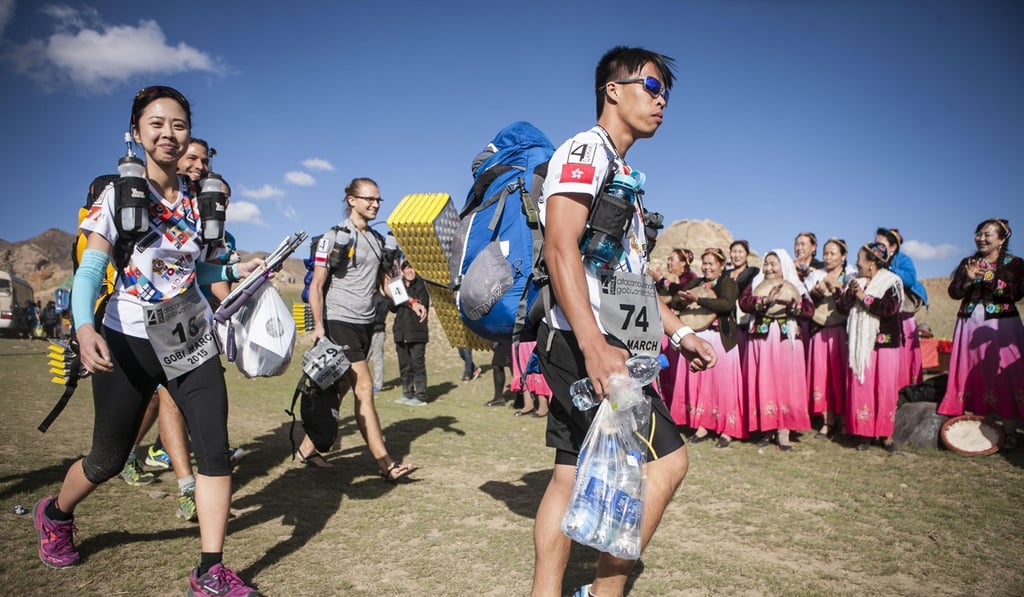Recovering teenage drug addicts given chance to ‘walk a different path’ thanks to Gobi Desert ultramarathon
- Esquel Group, one of the world’s largest textile apparel businesses, helps troubled youths run the Gobi March
- Each teenager has gone on to change their lives, graduate from university, become bakers or teachers and show no trace of their former addiction

Ultra running in the remote Gobi Desert is proving a powerful rehabilitation tool for troubled teens addicted to drugs. Since 2015, Esquel Group, one of the world’s largest textile apparel businesses, has been funding pupils from the Christian Zheng Sheng Association rehabilitation school to take part in the 250km Gobi March.
The gruelling experience has had such a profound effect on recovering youths, that it has helped to give them a new direction in life.
“When I talk to them now, I cannot see any trace of a misbehaving teenager. They tell me openly that they were a very serious addict, doing nothing,” said Agnes Cheng Ming-wai, who first ran the Gobi March in 2013 and is now head of Esquel Yang Education Foundation.
“But they have street survival skills, they are not stupid. They are smart in some ways. That is why it was easy for them, once they found the right path, to do well,” she said.

Of the students who have taken part, some have returned to Zheng Sheng to teach, others have gone on to graduate from university. One is a professional photographer and was the official snapper for the 2019 Standard Chartered Marathon. Another has become a baker.